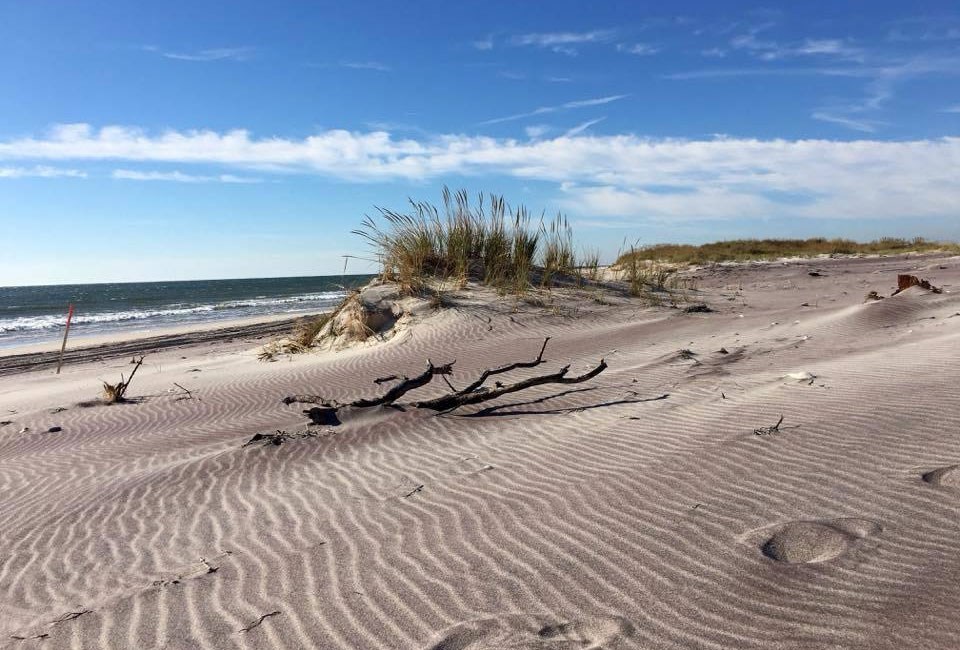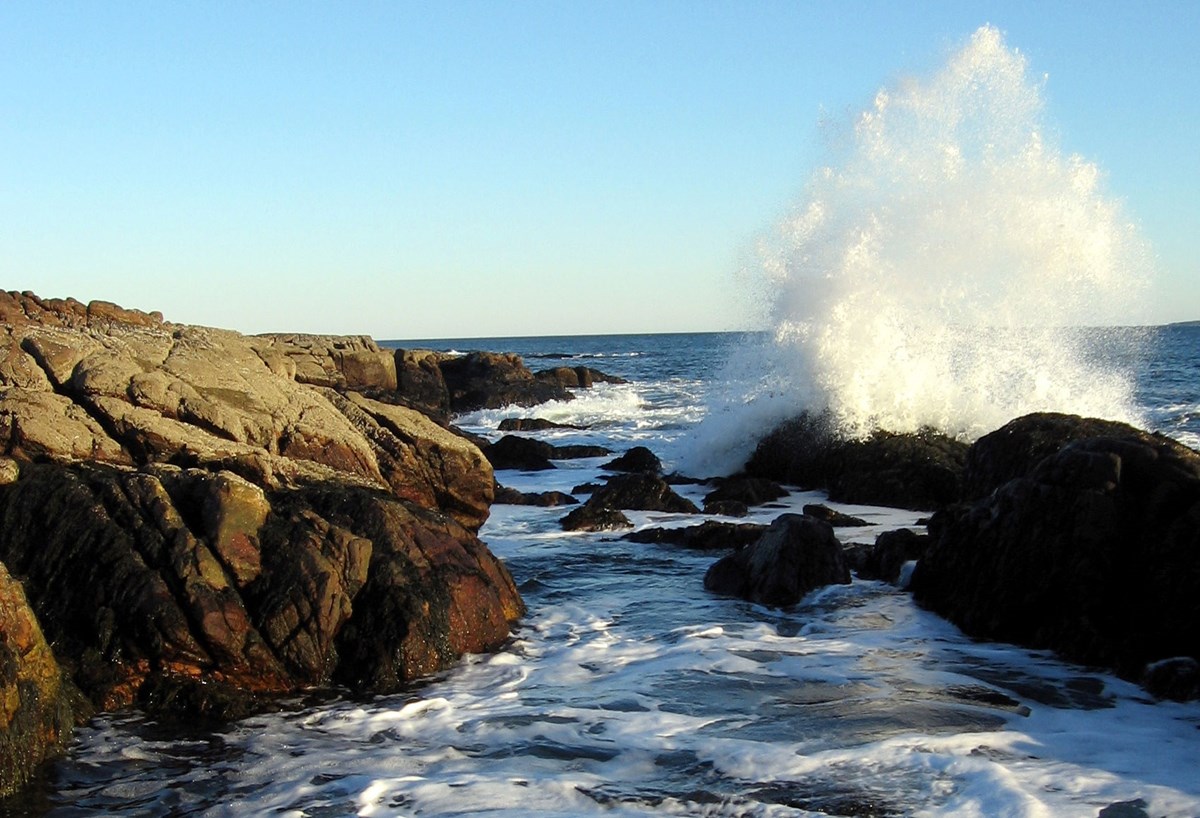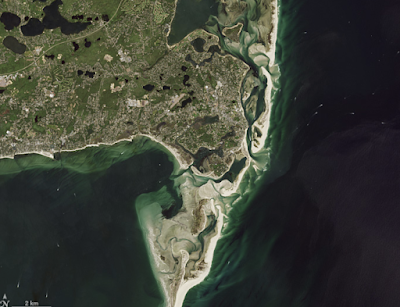All 2nd Grade Science Resources
Example Questions
Example Question #101 : 2nd Grade Science
Our land is changed when wind and water break down the soil and wash it away. Hurricanes and flooding cause damage when rocks, dirt, and sediment are carried away.

A city wants to prevent flooding of this level during the next storm. Which answer choice would NOT be a good way to prevent the land from being changed?
Build barriers to stop the water from flowing into the city.
Place large umbrellas near the sides of the town to block the rain.
Build a dam to stop water from moving into the towns.
Construct new ways to irrigate the town and push water out.
Place large umbrellas near the sides of the town to block the rain.
Floodwaters rush into the city and destroy homes, roads, and tear up plants. It would NOT be a good idea to place large umbrellas near the sides of the town to block the rain to stop the land from changing. This would not prevent a flood or keep erosion from taking place.
Example Question #102 : 2nd Grade Science
Fire Island in New York has an eroding shoreline. Over the years, waves have washed away much of the beach.

What can the state of New York do to prevent further changes to the beach?
Leave the beach alone; there is nothing that can be done.
Build barriers to stop the water from touching the sand.
Add more sand and plants to the shoreline.
Build a dam to stop the ocean from moving towards the beach.
Add more sand and plants to the shoreline.
Beach erosion is widespread and changes the shape of the land forever. The most reasonable and practical way to slow the wind and water would be to bring in sand and plants to rebuild the beach; this will add more shoreline and help to strengthen the coast. This should help slow some of the erosion and stop the land from changing.
Example Question #41 : Earth And Space Science
What caused erosion and the changes to the land to create this landform?

Erosion did not create this landform.
Vegetation and wind
Water and vegetation
Wind and water
Wind and water
This cliffside was formed by years and years of wind and water pushing through the ground and blowing against the sides. Erosion is the movement of broken down Earth to new places, and that is what the ocean and wind in this area have done. The water smashes into the cliffside, cutting a path while the wind blows tiny particles of soil and sand into the walls breaking it away slowly and moving it to new places. Many times humans get involved and try to prevent wind and water from damaging areas.
Example Question #44 : Earth And Space Science
There have been changes to the shoreline over the years, but then it changed back.
There have been changes to the shoreline over the years.
There have been no changes to the shoreline over the years.
Scientists cannot learn anything from these photos of the shoreline.
There have been changes to the shoreline over the years.
These aerial photos allow scientists to make comparisons of the same area over time to look for changes or similarities. In these photos, scientists could see that the shoreline has changed over the years. There is a reduction in the land visible, and more of it is underwater. The coastline has receded and become more narrow.
Example Question #1 : The Changing Shape Of Land And Water
In what way(s) can you represent the shapes and kinds of water in an area in a realistic way?
Draw a picture, create a map, or build a model
Take pictures of a swimming pool and describe it as a local lake
You cannot make a representation of the shape or kinds of water in an area
Create a fountain to display water in your home
Draw a picture, create a map, or build a model
Each body of water is unique and can be represented visually. The most reasonable and realistic ways to represent these bodies of water would be by drawing a picture, creating a map, or building a model. Using a model can bring in another level of detail by adding in actual water. A map and drawing will give readers a chance to see how the water is shaped and surrounded by land.
Example Question #2 : Use A Model To Represent The Shapes Of Water In An Area
Maps show where things are located, but you cannot map the shapes and kinds of water in an area.
False
True
False
This statement is untrue or false. Maps are a perfect way to show the shapes and kinds of water that are in an area. By mapping, a body of water, people can see the shape, size, depth, and how the surrounding land is shaped as well.
Example Question #2 : The Changing Shape Of Land And Water
Naomi's class is creating models to represent the shapes of water in different areas. She was assigned glaciers.
Which material would be the best to use to represent a glacier?
Cup of water
Steam
A glacier cannot be modeled
Ice cubes
Ice cubes
The best material to select would be the ice cubes. Glaciers are a solid made of frozen water like ice cubes. The ice cubes could be stacked or chipped into the shape of a specific glacier if needed.
Example Question #3 : The Changing Shape Of Land And Water
Patricia spent hours making a beautiful model of a local Canadian lake. It was complete with sand, grass, and was the same shape. She reread the instructions and realized it was supposed to be a model of the lake in winter!
What can Patricia do to her model to represent wintertime?
Add polar bears and penguins to the shore
Put it in the freezer to turn the water to ice
There is no way to fix the project now
Add waves, umbrellas, and beach chairs to the model
Put it in the freezer to turn the water to ice
Patricia needs to take her model from its current state to representing the wintertime. Patricia can put the model in the freezer to create ice instead of liquid water. In the winter, the lake could freeze over and become solid. These changes would make the lake appear to be in cold weather.
Example Question #4 : The Changing Shape Of Land And Water
What is a characteristic of Earth’s bodies of water?
They each have the same animals and plants in them.
They are all made of saltwater.
They are each unique and have their own shape.
They are all identical to each other.
They are each unique and have their own shape.
A characteristic of Earth's bodies of water is that they are all unique and have their own shape. No two bodies of water are the same. They are all shaped differently, have different plants and animals, varying depths, and are located across the globe.
Example Question #1 : Use A Model To Represent The Shapes Of Water In An Area
In what way(s) can you represent the shapes and kinds of water in an area in a realistic way?
Create a map
Draw a picture
All of the answer choices are correct
Make a model
All of the answer choices are correct
Each body of water is unique and can be represented visually. The most reasonable and realistic ways to represent these bodies of water would be by drawing a picture, creating a map, or building a model. Using a model can bring in another level of detail by adding in actual water. A map and drawing will give readers a chance to see how the water is shaped and surrounded by land. All of the listed answer choices would be good ways to represent bodies of water.
Certified Tutor
Certified Tutor
All 2nd Grade Science Resources






